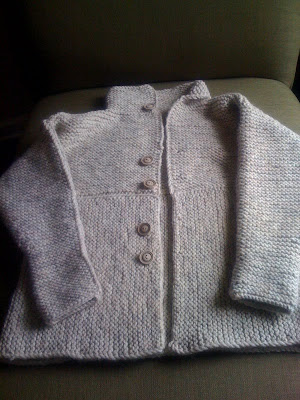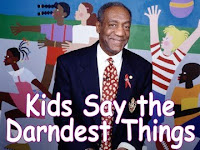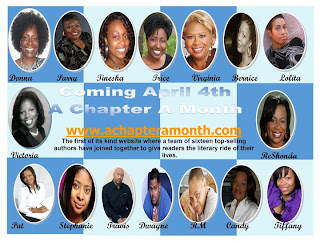 At one time or another Sue Lange has been one of the following: child, student, potato picker, first chair flautist, librarian, last chair flautist, babysitter, newspaper deliverer, apple picker, form cutter, drama club treasurer, track and field timer, Ponderosa Steak House salad server (before the salad bar days, of course), disco dance instructor and waitress, among other things. Lately she's been writing.
At one time or another Sue Lange has been one of the following: child, student, potato picker, first chair flautist, librarian, last chair flautist, babysitter, newspaper deliverer, apple picker, form cutter, drama club treasurer, track and field timer, Ponderosa Steak House salad server (before the salad bar days, of course), disco dance instructor and waitress, among other things. Lately she's been writing.Turning Your Story Into a Movie
Got a story that would make a great movie? Ever wonder how much fun it would be to make that movie yourself? I have the answer to the latter question: not very. In fact let me give you some advice: get the idea right out of your head before you hurt yourself.
Just kidding. Mostly.
I didn't follow my own advice hence the blog post. If you too decide to disregard my well intentioned counsel, you proceed at your own risk and welcome to the world of independent film making. Oh, I'm sorry. You're not going to fool around with the indies; you're going straight to Hollywood! Well good for you, Junior. See you at the Oscars, smirk, smirk.
For those of you with humbler, more realistic aspirations, what follows is a quick how-to on repurposing your story for film. I'm basing this information on one small experience taking my short story,
Jump, to the movies. That ought to tell you something about the vastness of my experience. Basically what you'll get here is a glimpse into the glamorous world of instant fame that every short film enjoys (Yes, I'm being sarcastic).
First off, write the script. Obviously. The finished product will little resemble your original story. Why? I could go into great detail about the difference in story telling styles between movies and written text. I could bemoan the time constraints in film and the lack of access to the protagonist's thoughts in a visual medium. I could remind you how absolutely boring it would be to watch a character thinking something (like they do in books) instead of doing something (like they do in movies), but that's all pretty unimportant. What is important is money. The real reason you'll be changing settings, dialogue, number of characters, and time of day is because you are writing for the indies and money is something that defines the indie film maker. Defines, as in, there isn't any.
So when writing for the independent film, you need a simple story with two or three characters only, no special sets or props, no special lighting or sound equipment. KISS (Keep It Simple Stupid) is not just good storytelling it's the only way a first-time indie filmmaker can get their dang movie made.
For example, a good fifth of
Jump, the story, takes place on the F train as it travels from Midtown out to Carroll Gardens in Brooklyn. The scene comes with beautiful visual details of the subway world complete with snappy commuter patter. I had no desire to deal with the NYC transit authority or have my cast and crew travel to New York. So for the movie, that section of the story turned into a short conversation amongst friends at a bus stop in Reading, PA.

Further on, the atmospheric setting for the big meeting between the suicidal Young Man and his savior, Wendt, complete with ripped out T-Bird seat inside a chain-linked fence in the yard next to an abandoned pickle factory at twilight, was also too expensive and specific for the locales available to us. That scene was shot on a futon in a corner of an old aluminum warehouse where time of day didn't matter and ambient sound could be controlled. The discussion on the fire escape moved to the inside stairwell. There was no crawling through broken windows or stepping on shattered glass that was a big part of making the original story visceral.
All the interesting details in the walk through eight lanes of high-speed highway traffic, the view of Brooklyn from a rooftop, the internal monologue as the protagonist strolled through the Red Hook projects, were deleted completely.
What I was left with was the bare bones of the story. And then it finally became affordable.
Once you do the hard part of paring down your story to script level, it's time to figure out who can accurately portray your characters. Depending on how complicated your script is, you'll need a bunch of other people to fill those roles. Hopefully those other people are your friends so they'll work cheap. The one problem with using cheap actors (unpaid in my case) is that there's no incentive for them to show up. I've worked on enough collaborations to know how easy it is to derail a project because one of the principals eventually gets a better offer. To circumvent problems of that sort, I also starred in the movie. I didn't want to, but early on the actress we had cast in the main role bowed out. Thankfully it was when we were just starting rehearsals. Instead of casting someone else, I just went ahead and did it myself. I like performance and have a lot of experience so it wasn't that big of a deal for me to do it. I'm not crazy about performing my own material, but it was the easiest way to get the movie made. Next time things will be different. Or so they always say.
So your script is written, you've found some cheap actors. What's next is way too complicated for a short blog post. The best thing to do at this stage is find somebody that knows how to make a movie and have them guide you. If you live in a town where films are not regularly made, that can be difficult. The next best thing is to read as much as you can on the process. Find a book. Or a hundred books. I started with Jason Tomaric's
The Power Filmmaking Kit. There are plenty others out there.
It is a lot of fun to make a movie as long as you don't try to do something that is too complicated with a lot of scenes and difficult effects or locations. Do a small story. Something that can take place in your kitchen.
Did I make a great movie? Dunno. I will say it was fun to make. And we had a great lunch after the shooting was done. Does it ever get better than that? I invite anyone interested in judging my talent as a movie maker to see for her or himself. The film will be screened at
Philadelphia's Urban/Suburban festival on June 25th.
Good luck with your own project! You'll need a whole new set of skills, but if you're a reasonably organized person and can get along with a lot of people, making a movie out of your story might just be an avenue to get your writing noticed.
Check out the
trailer for Jump here. Come visit my website at
www.suelangetheauthor.com.
—
Sue Lange















